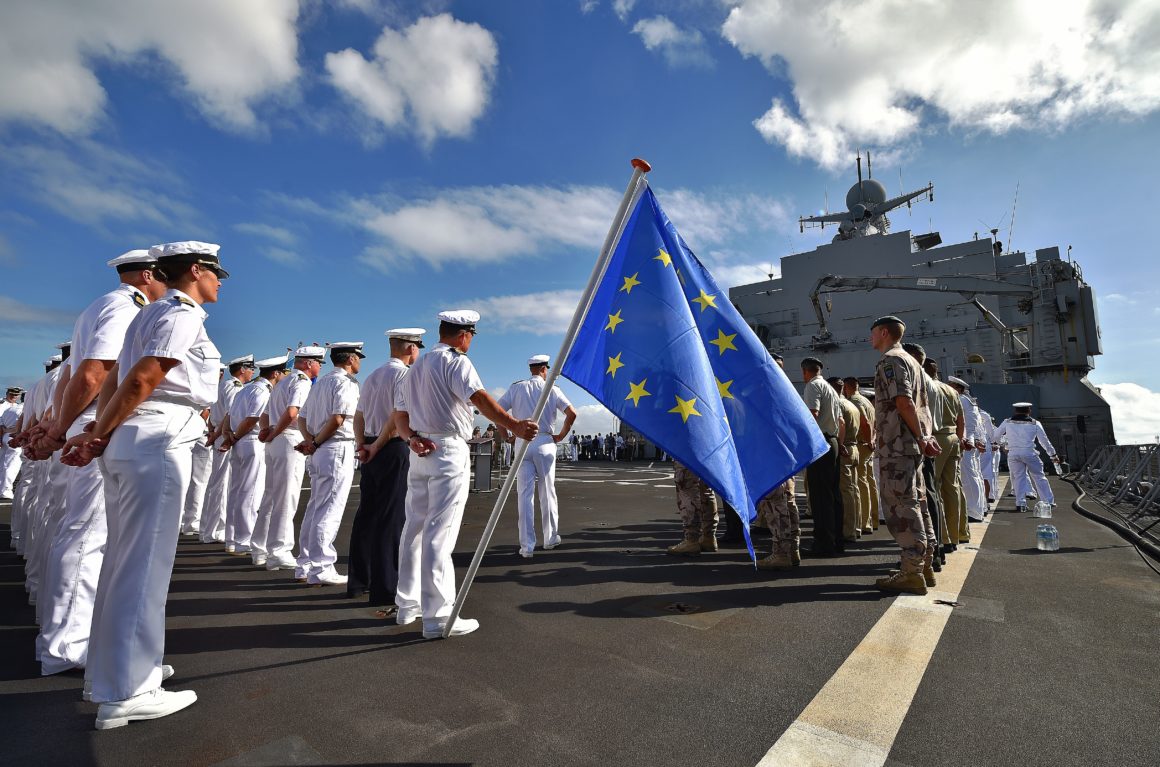Image source: defencechronicles.eu
In these times of continually sinking military budgets and as international terrorism becomes an ever more pressing threat, the members states of the European Union need to adopt a new commitment to deepening European Integration. The EU’s Common Foreign and Security Policy (CFSP) has not evolved for some time given that the EU is still mired in a severe internal crisis.
The capability gap between the EU and US is growing and power projections (the employment of hard power to affect governments or states over wide distances) is almost impossible, although the member states of the EU employ more military forces overall than the US. The problem with the European forces though is that their acquisition of equipment is uncoordinated and although military budgets are in decline, European forces have doubled their capacities but with mostly inferior equipment to their American counterparts. In recent years, EU member states have been moving toward better coordination of their troops (e.g., EU-Battlegroups or the Airbus A400M Atlas). But with this coordination arises a new problem: Who is in command?
The problem facing the European forces is that the armies within the EU are not an EU army, but rather national armies under national command. In the event of a mission (with or without an UN mandate), NATO has priority and only if it were to decide not to react to the situation could the EU then decide if it wished to and could.
Almost every EU-Battlegroup (comprising 1,500 soldiers) is also embedded in the NATO Response Forces (NRF) and these have priority status. The idea of forming a real European army failed in 1954 and is almost impossible to resurrect because on the one hand, the command of military forces is seen as being a basic component of a sovereign nation and on the other, the concept must conform to the constitutions of all member states. For example, the army of the Federal Republic of Germany (the Bundeswehr) is an army which can only be deployed with the approval of both German legislative chambers (Art. 21 I GG). This means that Germany would have to change its constitution if a European army were to be made possible. Furthermore, other nations are blocking the deepening of European integration (e.g., the UK, Poland, etc.) in this area because their parliaments want to remain in command or because they fear that this would lead to conflict with NATO or the US, and this situation is unlikely to change over the next years.
A further problem is that if the EU wanted to deploy troops, this would have to be by resolution, without any dissenting votes within the Council of the EU. This edict is codified in the Treaty of Lisbon and makes decisions related to CFSP matters very difficult. To make the EU more effective, this condition would need to be changed to a qualified majority.
If internal conflicts do not come to an end soon and EU member states don’t deepen their cooperation in equipping their forces and cooperating with respect to their military acquisitions, the capability gap between the US and EU will continue to grow and the EU will lose more and more of its influence in international politics.
Overall, common defense and security for Europe is not impossible but would be very hard to see through, as member states would have to give up some of their sovereign power to make a stronger EU possible.
Please note that the views expressed are those of the author and do not necessarily represent or reflect the views of Munich European Forum e.V.
